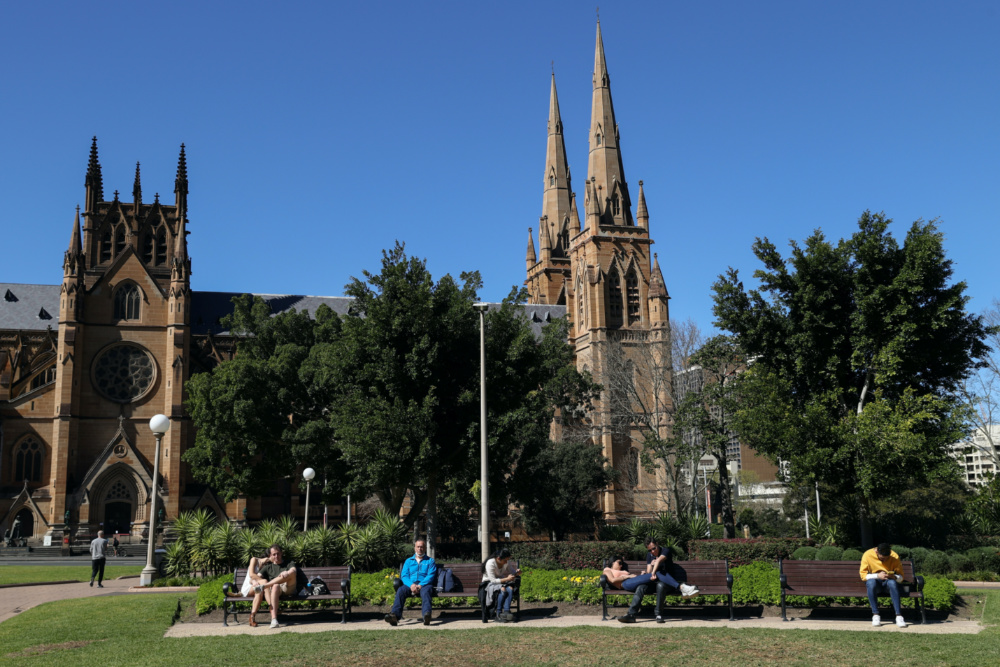Melbourne, Australia
Reuters
The virus that causes COVID-19 can survive on banknotes, glass and stainless steel for up to 28 days, much longer than the flu virus, Australian researchers said on Monday, highlighting the need for cleaning and handwashing to combat the virus.
Researchers at Australia’s national science agency, CSIRO, found that at 20 degrees Celsius (68 degrees Fahrenheit) the SARS-COV-2 virus remained infectious for 28 days on smooth surfaces such as plastic banknotes and glass found on mobile phone screens. The study was published in Virology Journal.
By comparison, Influenza A virus has been found to survive on surfaces for 17 days.

People walk through the city centre as the state of New South Wales continues to report relatively low numbers for new daily cases of the coronavirus disease (COVID-19), in Sydney, Australia, on 4th September. PICTURE: Reuters/Loren Elliott/File photo.
CSIRO’s research involved drying virus in an artificial mucus on a range of surfaces at concentrations similar to samples from COVID-19 patients and then extracting the virus after a month.
Experiments done in controlled laboratory environments at 20, 30 and 40 degrees C showed that the survival time declined as the temperature increased.
“Establishing how long the virus really remains viable on surfaces enables us to more accurately predict and mitigate its spread and do a better job of protecting our people,” CSIRO Chief Executive Larry Marshall said in a statement.
Proteins and fats in body fluids can also sharply increase virus survival times.
“The research may also help to explain the apparent persistence and spread of SARS-CoV-2 in cool environments with high lipid or protein contamination, such as meat processing facilities, and how we might better address that risk,” said Trevor Drew, director of the CSIRO’s Australian Centre for Disease Preparedness.
Australia has fared much better than most other rich nations in combating COVID-19, with a total of about 27,000 infections and 898 deaths in a population of 25 million.
The epicentre of the country’s second wave of infection, Victoria state, reported 15 new cases on Monday, well shy of a target of less than five which the government has set for the easing of a hard lockdown in the state capital Melbourne.
New South Wales, the most populous state, reported six new cases on Monday, five of whom were returned travelers in quarantine.
Meanwhile, Australia’s Prime Minister Scott Morrison said on Sunday that the country was in talks with Japan, South Korea, Singapore and South Pacific nations on reopening travel as coronavirus infections ease.
Australia shut its borders in March to slow the spread of the novel coronavirus and is looking to revive tourism to help pull the country out of its first recession in nearly three decades.
Morrison said he had spoken to his counterparts in Japan, South Korea and some Pacific nations, while Foreign Minister Marise Payne had held talks in Singapore this week on resuming travel.
“There are a number of countries that have performed well on the health front, and Australia and those countries are one of a handful of countries that have had the same level of success,” Morrison said at a televised media conference.
“But we have to go cautiously on this – very, very cautiously. COVID-19 hasn’t gone anywhere. It’s still there. And it is no less aggressive today than it was six months ago.”





